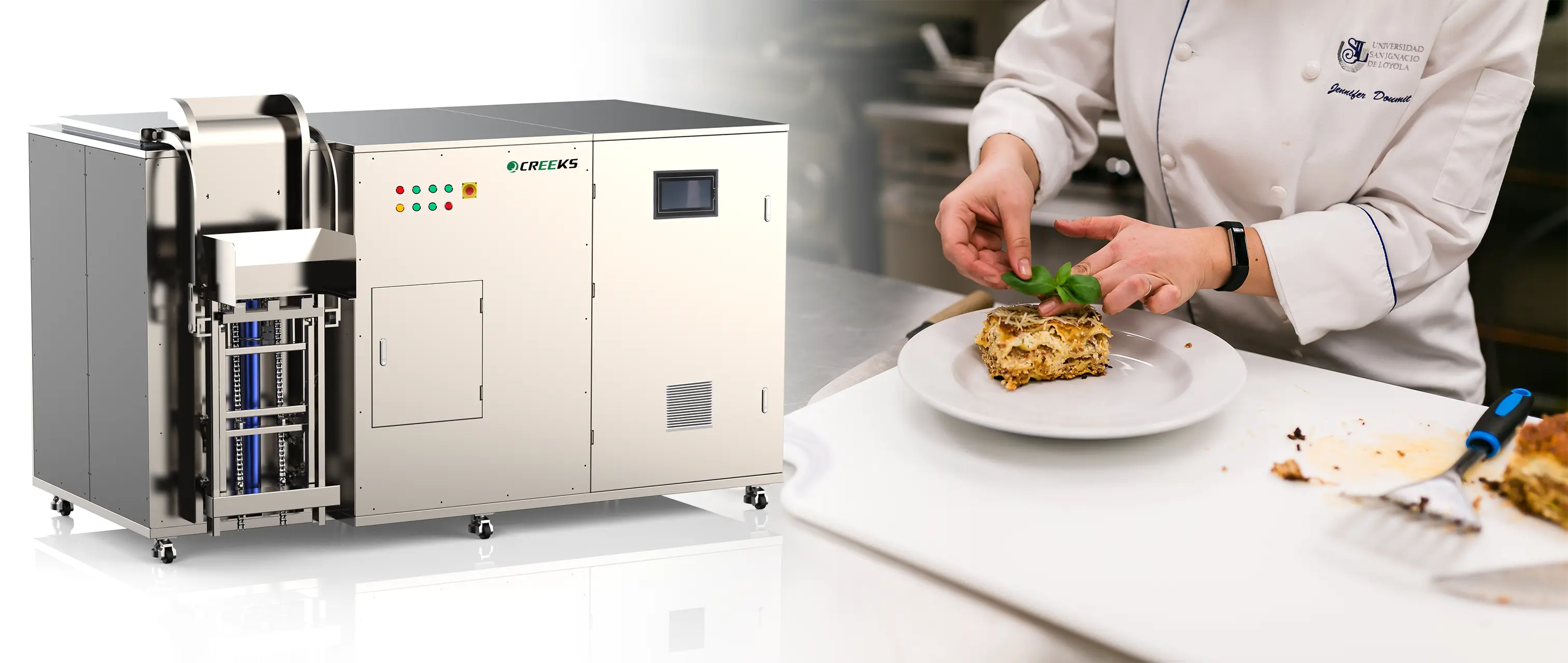Commercial Food Waste Recycling Equipment: Sustainable Solutions for Businesses
Food waste is a major environmental and economic challenge for businesses in the hospitality, retail, healthcare, and food service industries. Commercial food waste recycling equipment enables organizations to reduce landfill waste, lower disposal costs, and achieve sustainability goals. This article explores the types of food waste recycling systems available, their benefits, and how businesses can choose the right solution.
The Commercial Food Waste Recycling Equipment is ideal for on-site kitchen waste disposal at homes and restaurants, as it is designed and produced using the microbial aerobic decomposition process. It has minimal running costs, no pollution, no odor, excellent efficiency, low energy consumption, and environmental friendliness.
Food waste recycling is a pivotal solution in addressing the global issue of excessive food disposal. This sustainable practice involves converting food scraps and leftovers into valuable resources through various methods like composting, anaerobic digestion, or utilizing food-to-energy technologies. By diverting organic waste from landfills, food waste recycling minimizes methane emissions, lessens environmental impact, and creates renewable energy sources or nutrient-rich compost for agricultural purposes.
Creeks’ commercial food waste recycling equipment can work efficiently for more than three to six months without requiring kitchen garbage to be dumped outside, provided that they are fed with microbiological agents and accessories all at once, as well as kitchen waste every day. The challenges associated with gathering and centrally disposing of kitchen garbage at the source can be resolved by decomposing and reducing kitchen waste by around 85%–95%.
Benefits of Food Waste Recycling Equipment
- Cost Savings – Reduces waste hauling and landfill fees.
- Sustainability Compliance – Helps meet environmental regulations and corporate ESG goals.
- Energy & Resource Recovery – Some systems produce biogas or compost for reuse.
- Improved Hygiene – Reduces pests and odors associated with food waste.
- Brand Reputation – Appeals to eco-conscious customers and stakeholders.
Commercial food waste recycling equipment provides sustainable, cost-effective solutions for businesses to process organic waste on-site. These systems help restaurants, hotels, supermarkets, hospitals, and food processing facilities reduce landfill waste, lower disposal costs, and meet environmental regulations while converting food scraps into valuable resources like compost.
Ideal For
- Full-service restaurants & hotel kitchens
- Supermarket produce departments
- Corporate cafeterias & university dining halls
- Food manufacturing facilities
- Hospitals & healthcare facilities
Advantages of Using Commercial Food Waste Recycling Equipment
Organic waste composter is a great solution as opposed to the traditional techniques of waste management, which were time-consuming and took a lot of space. The self-contained composting machine is used for recycling both solid and liquid wastes. Let’s discuss the benefits of using a waste composting machine.
- The processing of waste is fast when composting through a machine. It takes fewer hours to complete the procedure which also implies saving money.
- The composting machine technology generates no secondary pollution.
- Automatic composting machines save operating manpower. The machine can easily be operated by one person.
- The machine can effectively manage all types of organic waste.
- Built with a stainless steel tank, the machine is durable.
- A composting machine is usually compact and therefore occupies less floor space.
- The machine can convert organic waste into compost.
- Composting benefits the environment by maintaining soil fertility. With the help of compost, soils can retain more water.
- Composting reduces the emission of harmful methane gas into the air.
- Composting serves as a natural fertilizer, thus avoiding the need for any artificial fertilizer for plant growth.
- Using a compost machine also helps reduce transportation costs.
- An increasing number of individuals have now learned about the benefits of organic waste converters. Many organizations are now using compost machines to recycle and convert their waste effectively. The volume reduction efficiency of composting machine technology ranges from 80 to 90%.

